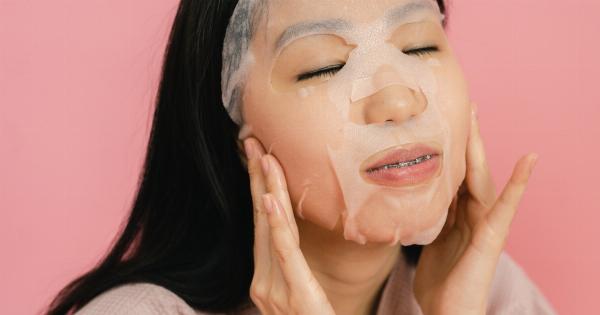Our hair goes through various changes and can help us identify nutrient deficiencies in our bodies. Hair is not just a reflection of our style and personality, but it can also serve as a valuable indicator of our overall health.
In this article, we will explore how different nutrient deficiencies can manifest in our hair, and how paying attention to these signs can help us take better care of our bodies.
Vitamin D Deficiency
Vitamin D, often called the sunshine vitamin, plays a crucial role in our overall health. Deficiency in this vitamin can lead to several health problems, and our hair can offer some clues about it.
One of the key signs of vitamin D deficiency is hair loss. If you notice increased hair shedding or thinning, it may be worth checking your vitamin D levels. Additionally, dryness and brittleness of the hair can also be indicators of low vitamin D.
Vitamin C Deficiency
Vitamin C is essential for collagen production, which is a protein that provides structure to our hair. Lack of vitamin C can result in weak hair that is prone to breakage and slow hair growth.
If you notice that your hair is lacking strength, appears dull, or takes longer to grow, it may be an indication of vitamin C deficiency.
Biotin Deficiency
Biotin, also known as vitamin B7, is crucial for maintaining healthy hair. It plays a significant role in the production of keratin, a protein that forms the structure of our hair.
A deficiency in biotin can lead to brittle, thinning hair, and even hair loss. If you experience these hair-related issues, it might be worth considering whether you are getting enough biotin in your diet.
Iron Deficiency
Iron deficiency, or anemia, can have a direct impact on the health of our hair. Iron is vital for the proper oxygenation of the scalp and hair follicles.
When we lack iron, our hair follicles receive less oxygen and nutrients, resulting in weak, thin, and slow-growing hair. If you notice excessive hair shedding and a lack of volume, it is worth checking your iron levels.
Zinc Deficiency
Zinc is an essential mineral that plays a role in maintaining healthy hair and scalp. It helps regulate oil production, prevents dandruff, and promotes hair growth.
A deficiency in zinc can lead to hair thinning, hair loss, and even scalp conditions such as dryness and flakiness. If you experience any of these symptoms, zinc deficiency might be a potential cause.
Omega-3 Fatty Acid Deficiency
Omega-3 fatty acids are known for their numerous health benefits, including promoting hair growth and maintaining scalp health. An inadequate intake of omega-3 fatty acids can result in dry scalp, dry hair, and even hair loss.
If you notice dandruff or an itchy scalp, it might be worth incorporating more omega-3-rich foods into your diet or considering a supplement.
Vitamin A Deficiency
Vitamin A plays a crucial role in the development and maintenance of healthy cells, including our hair follicles. A deficiency in vitamin A can lead to dryness and brittleness of the hair, as well as a dry scalp.
However, it’s important to note that while vitamin A is important for hair health, excessive intake can have adverse effects. Therefore, it’s essential to maintain a balanced intake of this vitamin.
Protein Deficiency
Protein is the building block of our hair, and insufficient intake can result in weak, brittle hair that is prone to breakage. In severe cases of protein deficiency, hair loss can also occur.
If you notice that your hair lacks strength and elasticity, ensuring an adequate intake of protein in your diet is essential.
Vitamin E Deficiency
Vitamin E is an antioxidant that helps protect our hair from damage caused by free radicals. It also promotes blood circulation, which is crucial for optimal hair growth. A deficiency in vitamin E can lead to dry, dull hair that appears lackluster.
Including vitamin E-rich foods in your diet can help combat these symptoms.
Conclusion
Our hair can provide valuable insights into our overall health, including potential nutrient deficiencies.
Paying attention to the signs of weak, brittle hair, hair loss, or slow hair growth can help us identify these deficiencies and take appropriate actions. However, it’s important to consult a healthcare professional for an accurate diagnosis and to establish the most suitable course of treatment. By nourishing our bodies with the right nutrients, we can support the health and vitality of our hair.




























